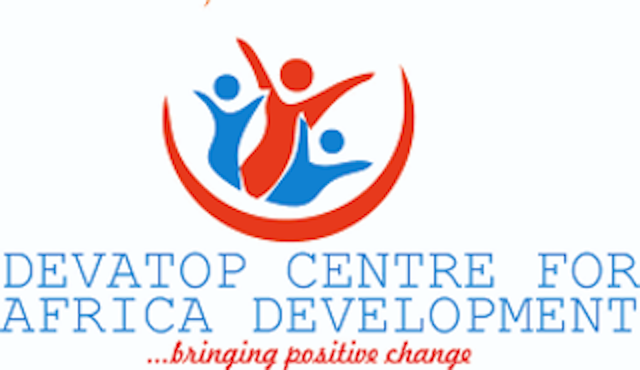Child domestic servitude, a pervasive and insidious form of child labor, casts a long shadow over the lives of countless children, robbing them of their fundamental rights and jeopardizing their future. This practice, which involves children performing domestic chores in private households under exploitative conditions, has become a pressing human rights concern, demanding urgent attention and concerted action from governments, communities, and individuals alike. The Devatop Centre for Africa Development, a leading advocate for children’s rights, has issued a clarion call to Nigerians, imploring them to reject this harmful practice and recognize children not as laborers, but as learners deserving of nurture, education, and protection. The organization’s campaign underscores the urgent need to dismantle the societal structures that perpetuate child servitude and to create an environment where children can thrive and reach their full potential.
The plight of children trapped in domestic servitude is harrowing. They are often subjected to long hours of arduous labor, denied access to education, and isolated from their peers. These children, many of whom are girls, are particularly vulnerable to physical, emotional, and sexual abuse, leaving lasting scars on their physical and psychological well-being. They are frequently deprived of adequate food, healthcare, and rest, leading to malnutrition, stunted growth, and a host of other health problems. The denial of education, a fundamental right, further perpetuates a cycle of poverty and limits their opportunities for a brighter future. These young victims are essentially robbed of their childhood, forced into a life of servitude that jeopardizes their physical, emotional, and social development.
The Devatop Centre for Africa Development, with support from the Freedom Fund and community partners, has taken a multi-pronged approach to combatting this deeply entrenched problem. Their comprehensive strategy focuses on prevention, protection, community action, and policy advocacy, aiming to address the root causes of child servitude and create a protective environment for children. Through community sensitization programs, the organization has trained over 65 community influencers who have reached more than 2,500 individuals, educating them on the harmful effects of child labor and the importance of safeguarding children’s rights. These influencers play a crucial role in changing societal attitudes and promoting a culture of child protection within their communities.
Devatop has also implemented innovative technological solutions to empower children and facilitate reporting of abuse. The TALKAM Human Rights App and dedicated hotlines provide a safe and accessible platform for children to report instances of abuse and seek assistance. This technology empowers children to become active agents in their own protection, giving them a voice and a means to escape exploitative situations. Furthermore, Devatop has established Child Rights Forums, safe spaces where over 110 vulnerable children have found refuge and support. These forums provide a platform for children to learn about their rights, build confidence, and connect with peers who share similar experiences.
Recognizing the importance of education and vocational training in breaking the cycle of poverty, Devatop has re-enrolled seven children in school and placed five others in vocational training centers. These educational opportunities provide children with the skills and knowledge they need to secure a brighter future and become self-sufficient adults. The organization also conducts monthly mentorship clinics, attended by 38 children, where they receive guidance and support in defending their rights and building self-esteem. These clinics play a vital role in empowering children to become advocates for themselves and their peers.
Devatop’s collaboration with law enforcement agencies has resulted in the resolution of nine out of twelve reported abuse cases. This partnership is essential in bringing perpetrators to justice and deterring future instances of child exploitation. The organization recognizes that effectively combating child servitude requires a multi-sectoral approach, involving government agencies, communities, and families. Their advocacy efforts focus on strengthening laws and enforcement measures, promoting community engagement in child protection, and raising awareness among parents and guardians about the importance of respecting children’s rights. Ultimately, the goal is to create a society where children are valued as learners, not laborers, and where their rights are protected and upheld. This vision requires a fundamental shift in societal attitudes, recognizing that children are not commodities to be exploited but individuals deserving of love, care, and the opportunity to reach their full potential.














